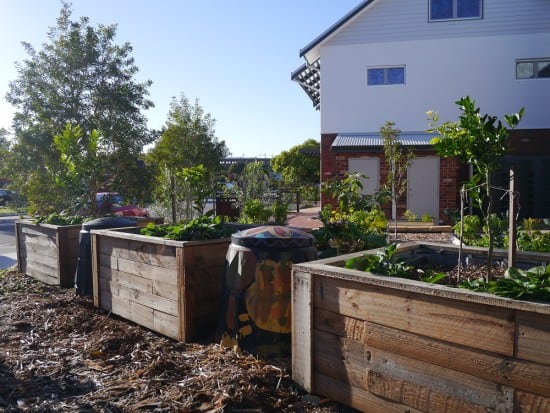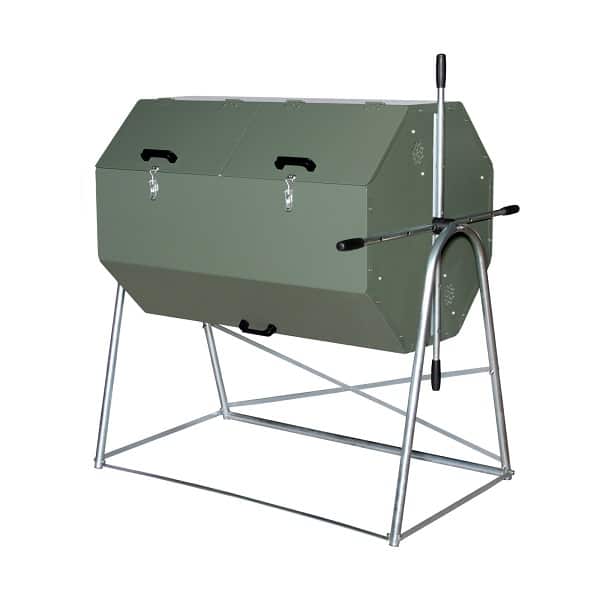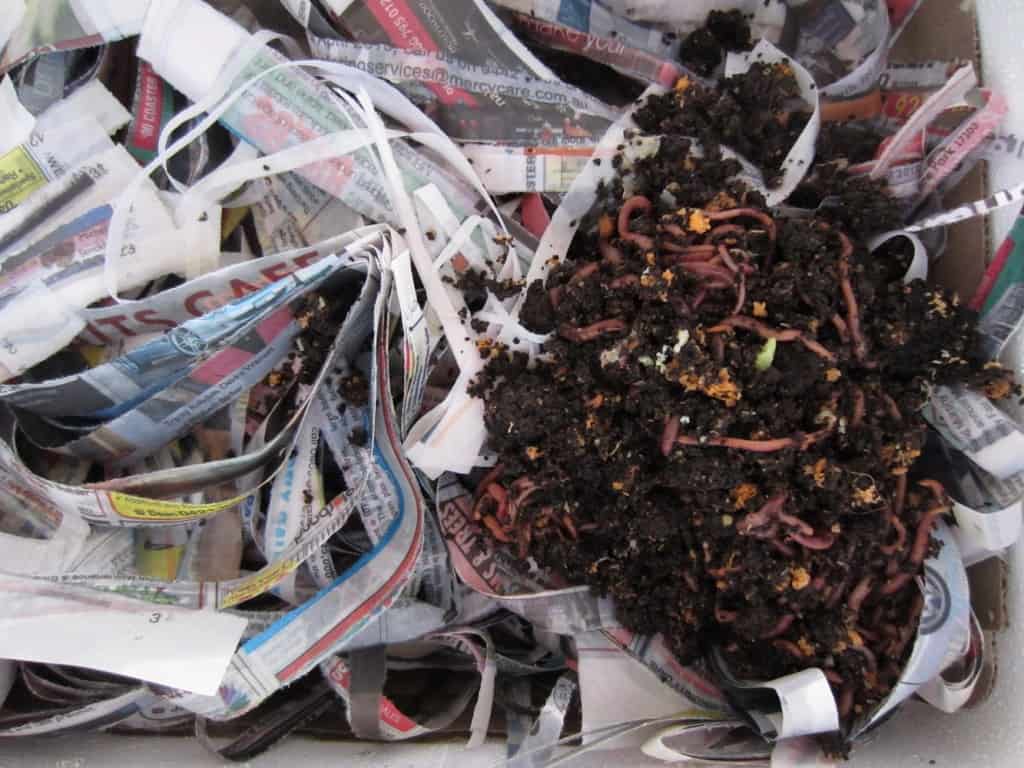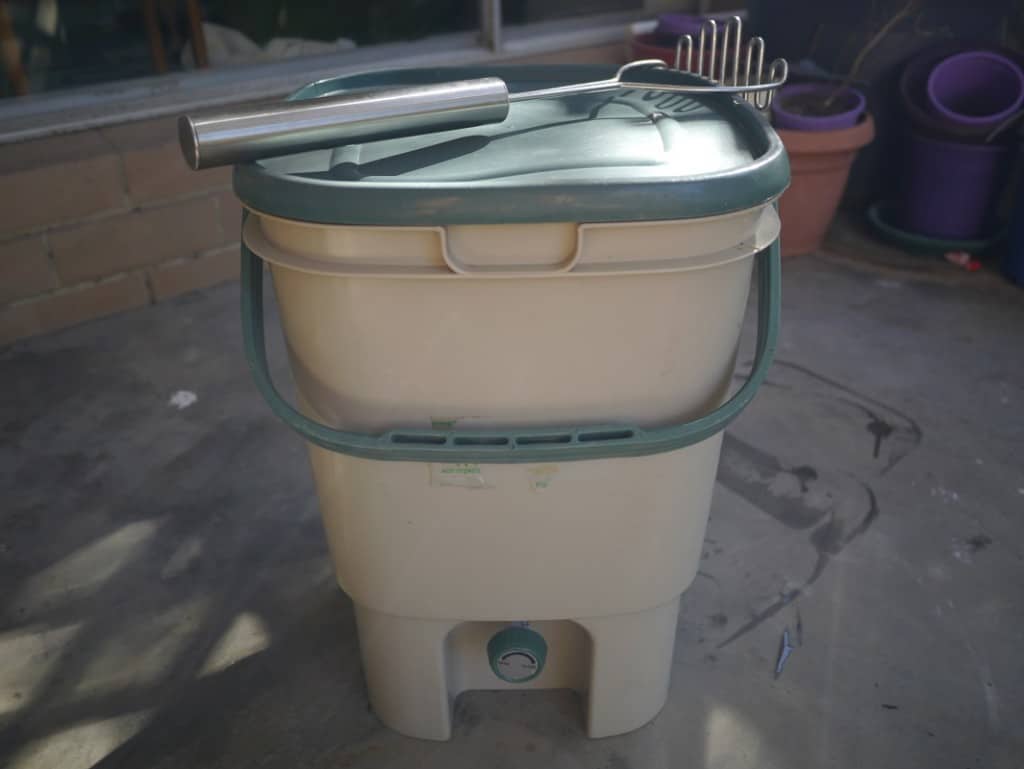How to Compost for Zero Waste Living Without a Compost Bin
When I gave up plastic, I quickly noticed that the only thing going into my rubbish bin was food scraps. Take out the plastic, and food waste is pretty much all that’s left. Glass, paper, cardboard and metal are commonly recycled, so these would go in the recycling bin.
It’s not that I was throwing perfectly good food away. You wouldn’t catch me doing that! Food waste includes spoiled fruit and vegetables, the peels, the skins, the outer leaves, the cores, the husks, the seeds. The inedible bits.
Food waste makes up almost 40% of the average domestic rubbish bin. Without the plastic, it was nearly 100% of mine! I realised that if I could set up a system for dealing with food waste, my bin would be empty.
The thing was, when I began living zero waste, I lived in an upstairs flat without a garden. The good news is, we managed. There is always a way! There are actually plenty of ways to deal with food waste without having a garden or even a compost bin.
A Zero Waste Guide to Composting (No Garden? No Problem!)
1. Regular Composting

A standard compost bin requires a patch of soil or dirt about 1m² where it can be dug in. That isn’t a huge amount of space. Even if you don’t have your own garden, there might be a shared area where you can put one.
And if the reason you’re not composting is simply because you haven’t yet got yourself a compost bin yet… Well, get yourself on the local classifieds sites or Freecycle immediately! There is no time to lose ;)
Suitable for: anyone with a small patch of dirt.
Not suitable for: apartment dwellers, those with no outdoor green space.
2. A Rotary Composter

A rotary composter is a compost bin suspended on a frame, making it useful for small spaces and paved surfaces. They are also called barrel composters and spinning composters. They are often more expensive than regular compost bins, and it is worth paying extra for one that is well designed and sturdy. They can be difficult to turn when full, particularly the larger ones, so bear that in mind before choosing the XL model. Read reviews to find a model that suits your needs.
Suitable for: anyone with a balcony, yard or space outdoors.
Not suitable for: people with back or strength issues (who may find turning it hard).
3. Neighbours with Compost Bins (or a Garden)
You might not have a garden, but what about your neighbours? Would they mind if you put a compost bin on their land? How about family and friends living locally? It doesn’t hurt to ask, and it’s a great way to build good relations with your neighbours.
Alternatively, check out this great site Sharewaste.com, which lets you either find places to take your compost, or offer your compost bin to others. I’ve registered my bins!
Suitable for: anyone with friendly neighbours or friends/family with a garden.
4. Council collections
When I lived in Bristol (UK) I was lucky enough that the council would collect food scraps from my door once a week for composting. If you live in an area with this service, make use of it! If you don’t live somewhere where this happens, contact your council and find out if there are any plans to launch it in the near future.
(If your friends or family have this service but you don’t, maybe you can make use of theirs!)
Suitable for: anyone with a council composting collection service.
5. Collected Compost
This is similar to the council composting scheme, except they are run privately. Food waste is collected from your door and taken away for composting. Unlike the council services, there may be a small charge for these services.
Sometimes Farmers Markets offer this service, so you can take your compost waste to the Farmers Market.
Suitable for: anyone living in the catchment of a private compost collecting company.
Not suitable for: anyone on a tight budget who doesn’t want to commit to weekly collection fees.
6. Community Garden Composting
If you don’t have space to compost at home, and you don’t have neighbours, friends or family who are able (or willing) to help you out, community gardens are a great place to take your compost. Many are willing to take food scraps without the need for you to be a member (although being a member is a great way to support a local organisation doing good in the community). Find out where the nearest community garden is to your home or your place of work, and get in touch to find out how you can connect your waste with their bins.
Suitable for: anyone living or working near a community garden with compost bins.
7. Worm Farm (Vermicomposting)

A worm farm is typically a box with air holes, drainage and a lid, and worms. Worm farms (also called vermicomposting) uses composting worms, which are fast growing and fast eating, rather than earthworms that you might dig up from your garden. They eat food waste and turn it into rich worm castings that is a great soil additive.
They are available for purchase (often in the second-hand ads) or you can make your own using waste materials.
Worm farms can be kept indoors or outdoors dependent on climate (worms don’t like the cold). If looked after properly they do not smell.
Suitable for: everyone, but especially apartment dwellers and those without a garden.
8. Bokashi

Bokashi bins ferment waste rather than breaking it down. They are an indoor home composting system and can deal with all types of waste, including cooked food and meat/fish products. Inoculated bran is added to the bin to kickstart the fermentation process. The bokashi bin is sealed and does not smell.
Once filled the contents need to be dug into a garden or added to a compost bin, so access to outside space is necessary.
Find out more about bokashi composting.
Suitable for: meat eaters who have waste unsuitable for composting.
Not suitable for: anyone without access to outdoor space.
…
When we began our zero waste lifestyle, we started out with a single worm farm. That grew to two worm farms, and we added a bokashi bin to the mix too. Now we have a garden we still have the worm farms and the bokashi bin (although this is not currently in use) and have established not one but four compost bins! This means we have space not only to compost our own food scraps, but other people’s too :)
Now I’d love to hear from you! How do you deal with your food waste? Do you compost, or have a worm farm, or a bokashi? Do you have all three?! Or none of them, and you do something completely different? Have you tried any of these and not got on with them? Do you need help or troubleshooting? Which one is your favourite? Any that you’d like to get started with? Tell me your thoughts in the comments below!
[leadpages_leadbox leadbox_id=123a865e9839c5] [/leadpages_leadbox]



